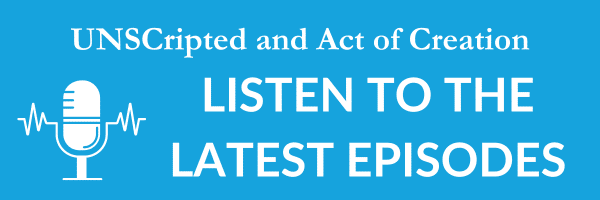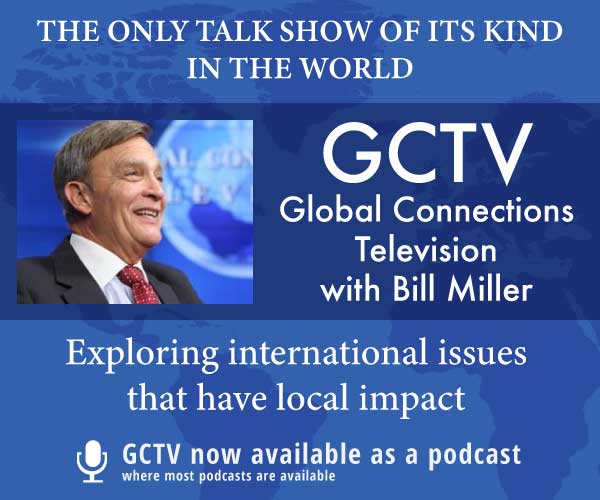
As the 15 ambassadors in the United Nations Security Council hurried late Wednesday night into the chamber to meet for an emergency session on Ukraine — and most of them calling for a de-escalation of tensions — President Vladimir Putin, eight time zones away, declared war, authorizing a “special military operation” in the country.
Putin’s announcement came about midway through the Council meeting. But even as reports of heavy fire in Ukraine were being messaged on Twitter, the Russian ambassador refused, at the end of the meeting and close to midnight, to call his country’s invasion a “war.”
“The statement that I came here with tonight, most of it is already useless,” said Ukrainian Ambassador Sergiy Kyslytsya in his opening remarks at the meeting, which began at 9:30 P.M. Eastern Standard Time. “The ambassador of the Russian Federation . . . confirmed that his president declared a war on my country.”
Reports of explosions in Ukraine’s capital, Kyiv, and Kharkiv, an industrial city 26 miles from the Russian border, were first reported by media outlets on Twitter around 9:50 P.M., roughly 20 minutes into the Council gathering. As the ambassadors read prepared speeches one by one, most of them seemed oblivious to the news flashing across social media that Putin had formally declared war and blood was already spilling in Ukraine. Instead, the diplomats kept imploring Russia and Ukraine to avert such a disaster, revealing how UN ambassadors can often appear to be operating in an alternate universe.

In the Council, UN Secretary-General António Guterres also kept up his pleas for peace, which have been pointedly ignored — and now vilified — by Russia throughout the diplomatic efforts in the last few weeks by the UN leader and dozens of countries in the lead-up to the start of the war last night.
Close to midnight, Guterres told reporters that this is “the saddest moment in my tenure as Secretary-General of the United Nations. I started this meeting of the Security Council addressing President Putin and telling him from the bottom of my heart: Stop your troops from an offensive against Ukraine, give peace a chance because too many people have died.
“During the meeting President Putin announced a ‘special military operation’ in the Donbas and required the Ukrainian troops to lay down their arms. So, in the present circumstances I must change my appeal. I must say, President Putin: In the name of humanity bring your troops back to Russia.”
“This war doesn’t make sense,” he added, his voice halting and weary.
Once it became clear that attacks were underway, some Council members spoke up about the news. “At the exact time as we are gathered in the Council seeking peace, Putin delivered a message of war,” US Ambassador Linda Thomas-Greenfield said. “This is a grave emergency.”
Europeans chimed in. Briton’s ambassador, Barbara Woodward, described Russia’s attack as “unprovoked and unjustified,” while Ambassador Ferit Hoxha of Albania accused Russia of “attempting to destroy European security.” In her final remarks, Ireland’s ambassador to the UN, Geraldine Byrne Nason, grimly noted that “the path for diplomacy” and “the path for dialogue” were closed.
Ukraine had requested the Council meeting on late Wednesday afternoon, apparently aware that the war would start within hours. But in the chamber, Kyslytsya sat composed at first, repeatedly singling out Russian Ambassador Vassily Nebenzia, who is the Council’s rotating president for February. (The United Arab Emirates will take the presidency on March 1.)

Kyslytsya’s tone shifted as more media reports swamped social media about the initial onslaught by Russia on its neighbor. “So now I would like to ask the ambassador of the Russian Federation to say on the record that at this very moment, your troops do not shell and bomb Ukrainian cities,” Kyslytsya said. “That your troops do not move in the territory of Ukraine. You have a smartphone you can call Lavrov [Russia’s foreign minister] now. We can make a pause to let you go out and call him.” Nebenzia stayed silent. (His speech to the Council and other replies to the Ukraine ambassador.)

“If you’re not in a position to give an affirmative answer,” Kyslytsya continued, “the Russian Federation ought to relinquish responsibilities of the president of the Security Council [and] pass these responsibilities on to a legitimate member of [the] Security Council . . . relinquish your duties as the chair. Call Putin, call Lavrov and stop [the] aggression. There is no purgatory for war criminals. They go straight to hell, ambassador.”
In response, Nebenzia eked out a response, saying Russian aggression was against the Kyiv “junta” and not the “Ukrainian people.” He adjourned the meeting, with him and his small delegation slipping out of the UN, avoiding the media standing outside the chamber. (Nebenzia did talk briefly to reporters when he entered the Council earlier, saying that he was “starting to enjoy nightly meetings.”)
Russian ambassador to UN jokes as he enters emergency SecCouncil mtg last night, during which Putin officially started his war on #Ukraine https://t.co/9q3zigzuV6
— PassBlue (@pass_blue) February 24, 2022
After the meeting, Kyslytsya told PassBlue that he had called it because he knew that Russia would invade on Wednesday night.
The evening belied everything Russian diplomats have repeatedly said publicly for weeks: that their country had no intention of attacking Ukraine, even as Russian military was gathering tens of thousands of troops and armor around the border. Dmitry Polyanskiy, Russia’s deputy ambassador to the UN, tweeted on Feb. 20: “The Russian invasion of Ukraine will happen on 30th February this year. Put it in your diaries.”
Ukraine envoy at UN last night: he knew the war would start within hours https://t.co/s7Rd02uVnT
— PassBlue (@pass_blue) February 24, 2022
The week’s tensions began to peak when Putin held a session with his country’s Security Council on Monday, Feb. 21. There, he signed a presidential decree recognizing the independence of the Donetsk and Luhansk territories, which have been occupied by pro-Russian separatists in the Donbas region since 2014. Shortly after signing the decree, Putin gave a lengthy speech on Russian TV, slamming Ukraine’s existence, cursing NATO and characterizing sanctions from the West as a form of “blackmail” designed to “restrain the development of Russia.”
(The US and Europe started slapping sanctions against Russia since the decree, and Germany killed the certification process to open the controversial Nord Stream 2 gas pipeline from Russia. More sanctions were imposed on Feb. 24, by the US and allies, described by the White House as “severe and immediate economic costs on Russia in response to Putin’s war of choice against Ukraine.”)
On Tuesday, the Duma, part of Russia’s parliament, signed off on Putin’s recognition of the self-declared Donetsk and Luhansk entities, paving the way for troops and military equipment to be sent into Donbas, at Putin’s demand. On Wednesday, in response to alleged threats from Ukraine’s armed forces, Putin greenlighted a “special military operation” into the country, triggering war as most members in the the Security Council were attempting to make a last-ditch gamble to stop the conflict. (Putin actually cited Article 51 of the UN Charter to justify his actions, as it enshrines a nation’s right to self-defense if attacked.)
Earlier on Wednesday, in a broad show of support from UN member states for Ukraine, the General Assembly also met, trying to avoid the on-ramp to war. Many ambassadors bemoaned Russia’s willingness to dismiss the tenets of the UN Charter as well as to violate Ukraine’s sovereignty and territorial integrity — its right to exist as an independent country. Some countries suggested that the UN’s own future was at stake, citing the short-lived League of Nations from 1920.
China, which has been inching slowly from its neutral stance on Russia’s recent military actions in Ukraine toward a more reactive posture, said in the UN Assembly: “China’s position on safeguarding the sovereignty and territorial integrity of all states has been consistent. The purposes and principles of the UN Charter should be jointly upheld.”
Guterres has been repeatedly citing the UN Charter in his own peacemaking overtures on the Russia-Ukraine crisis. He emphasized in the Assembly that aspects behind the Declaration on Principles of International Law Concerning Friendly Relations and Cooperation Among States include “the sovereign equality of states” and the inviolable rights of a state’s “territorial integrity” and “political independence.”

“If the conflict in Ukraine expands,” Guterres continued, “the world could see a scale and severity of need unseen for many years. I urge all sides to allow safe and unimpeded access by humanitarian agencies, including non-government-controlled areas of eastern Ukraine. . . . I’m fully committed to support all efforts to resolve this crisis without further bloodshed. My good offices remain available. We cannot and will not relent in the search for a peaceful solution.”
In a fiery response, Nebenzia of Russia mocked Guterres’s offer of “good offices” in the Assembly.
“To our regret, Secretary-General of the UN recently and also today made several statements regarding the developments in the east of Ukraine,” Nebenzia said. “Those statements do not meet his status and authorities as defined by the UN Charter.”
“Specifically, on Ukraine,” he continued, “the Secretary-General never spoke up to stress the need for implementing provisions of the Minsk Package . . . no one in the West ever mentioned this, and unfortunately, the Secretary-General chose to follow suit. That said, we do not quite understand what good offices that the Secretary-General talked about he can actually offer.”
The Security Council plans to meet on Friday to vote on a draft resolution condemning Russia’s action “in the strongest terms possible,” US senior diplomats said in a Feb. 24 briefing. It’s unlikely to pass because of Russia’s veto power, but it will be a closely watched vote to see which Council members condemn Russia or, as Thomas-Greenfield has said, sit on the fence.
It may not make a difference, as the president of Ukraine tweeted on the morning of Feb. 24:















The US, EU and NATO made grave mistakes when they let Putin conquer and start war in Georgia in 2008 and declare independence of the two Georgian regions in Abkhazia and Samachablo. What did the US, EU and NATO do? Absolutely nothing! Merkel and Obama expressed concerns and closed the case. Therefore, Georgia’s 2008 invasion was Putin’s test run for bigger wars and military adventures. 100% Obama’s and Merkel’s fault! The US, EU and NATO leadership completely failed. Then what did Putin do? In 2014 Russia attacked and took over Crimea at first and then Eastern Ukraine, where the Russian forces directly and indirectly engaged in warfare against the Ukrainian state. What did the US, EU and NATO do? Absolutely nothing! They forced (Germany & France) Poroshenko to accept horrible Minsk treaties and the EU/US did hit Russia with the bare minimum of sanctions that did not amount to anything… This further motivated Putin to solve his political goals of restoring the Russian Empire through military means and bloodshed. Therefore, now we have this global disaster! That’s why Putin did dare to start another war of conquest of the free Ukraine to enslave its people and change their future, their destiny & limit their freedoms and turn Ukraine into the Russian subservient state. Now we have this bloodshed, war crimes and terror… Whose fault is it? It is Putin’s fault as much as it is the US, EU and NATO leadership’s fault who kept ignoring the international bully and turned blind eye on the atrocities committed in Georgia and Ukraine for the past 15 years! US, EU & NATO need to impose the No Fly Zone immediately! At least above the humanitarian corridors so that Putin won’t be able to continue killing the civilians and children.